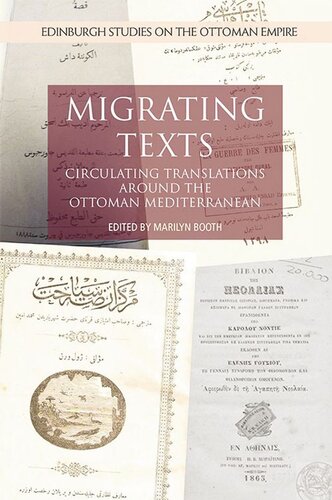

Most ebook files are in PDF format, so you can easily read them using various software such as Foxit Reader or directly on the Google Chrome browser.
Some ebook files are released by publishers in other formats such as .awz, .mobi, .epub, .fb2, etc. You may need to install specific software to read these formats on mobile/PC, such as Calibre.
Please read the tutorial at this link: https://ebookbell.com/faq
We offer FREE conversion to the popular formats you request; however, this may take some time. Therefore, right after payment, please email us, and we will try to provide the service as quickly as possible.
For some exceptional file formats or broken links (if any), please refrain from opening any disputes. Instead, email us first, and we will try to assist within a maximum of 6 hours.
EbookBell Team

4.4
102 reviewsFénelon, Offenbach and the Iliad in Arabic, Robinson Crusoe in Turkish, the Bible in Greek-alphabet Turkish, excoriated French novels circulating through the Ottoman Empire in Greek, Arabic and Turkish – literary translation at the eastern end of the Mediterranean offered worldly vistas and new, hybrid genres to emerging literate audiences in the nineteenth and early twentieth centuries.
Whether to propagate ‘national’ language reform, circulate the Bible, help audiences understand European opera, argue for girls’ education, institute pan-Islamic conversations, introduce political concepts, share the Persian Gulistan with Anglophone readers in Bengal, or provide racy fiction to schooled adolescents in Cairo and Istanbul, translation was an essential tool. But as these essays show, translators were inventors. And their efforts might yield surprising results.